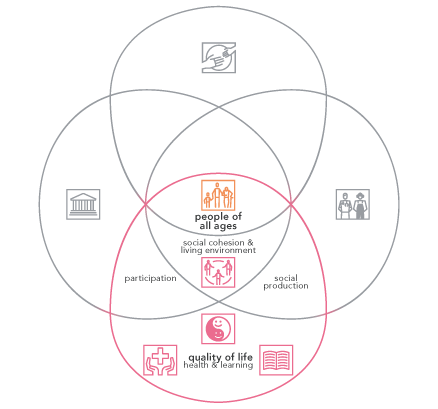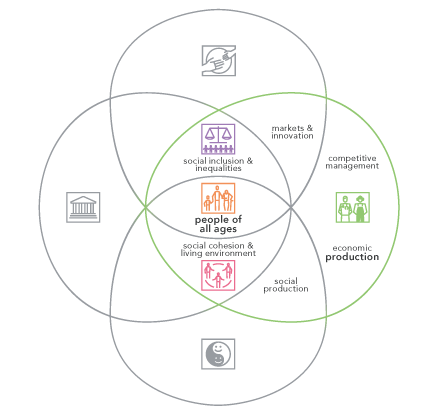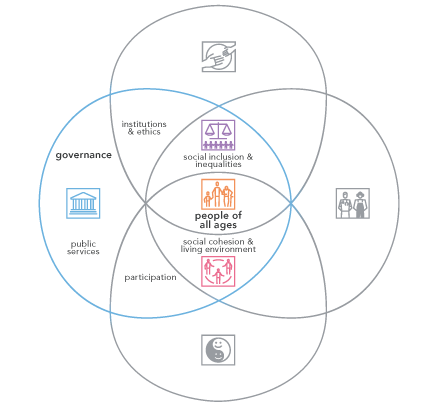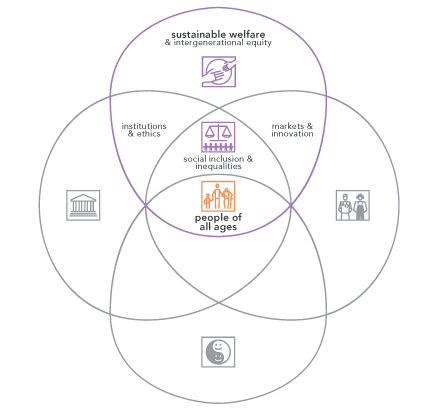Strategic Research Agenda
The Strategic Research Agenda (SRA) is written in 2014 by the chairs of the General Assembly (GA) with help from the Scientific Advisory Board (SAB) and the Societal Advisory Board (SOAB) to help all participating countries, and other research funders to prioritise and design research activity related to demographic change: an issue which cuts across many fields of academic study and public policy. Its aim is to ensure that policymakers and practitioners, at all levels, have access to the research evidence they need to enable all their citizens to live the most satisfying and productive lives possible.
Four research domains
The SRA defines priorities for research and policy making in four domains of demographic impact on society.
Quality of Life Health and Wellbeing
How to ensure the best possible quality of life for all people, throughout their lives (including the final stages), recognising the diversity of individual circumstances and aspirations, and the role of social relationships in fostering individual wellbeing. This is arguably the overarching objective which all Governments seek to achieve. We need to better understand what quality of life means for different people at different life stages and to use that knowledge to evaluate the impact of policies in all the other domains.
Economic and social production
How can economic and social production be maintained across the extended lifespan in ways that are sustainable, equitable, and efficient in the use of human and technical resources? Production is a complex area. As our active post-retirement lifespan expands and young people take longer to enter the paid economy, the boundaries between paid and unpaid work are shifting.
Governance and institutions
How might institutions and decision-making processes need to change, at all levels from local to European, to meet emerging needs and to ensure that all citizens can be full participants in decisions affecting their lives as the normal life course extends? Systems of governance, through which decisions are made, have the potential either to empower or to exclude citizens, or particular groups of citizens, from control over their lives and thus over their wellbeing. Often the best, and most economical, solutions for older people require the integration of separate services, but, because institutional responsibilities and structures have evolved to meet the needs of society in the past, they are often structured in ways that make such integration difficult and expensive. Furthermore, not all the emerging needs are well met by existing institutional structures, especially in relation to learning and access to technology.
Sustainable welfare
How is it possible to secure adequate levels of social welfare for all people, as the age balance of the population changes, and the proportion who are economically inactive grows? Welfare systems, in the broad sense, have evolved differently in different countries, but all will be challenged by demographic change.





